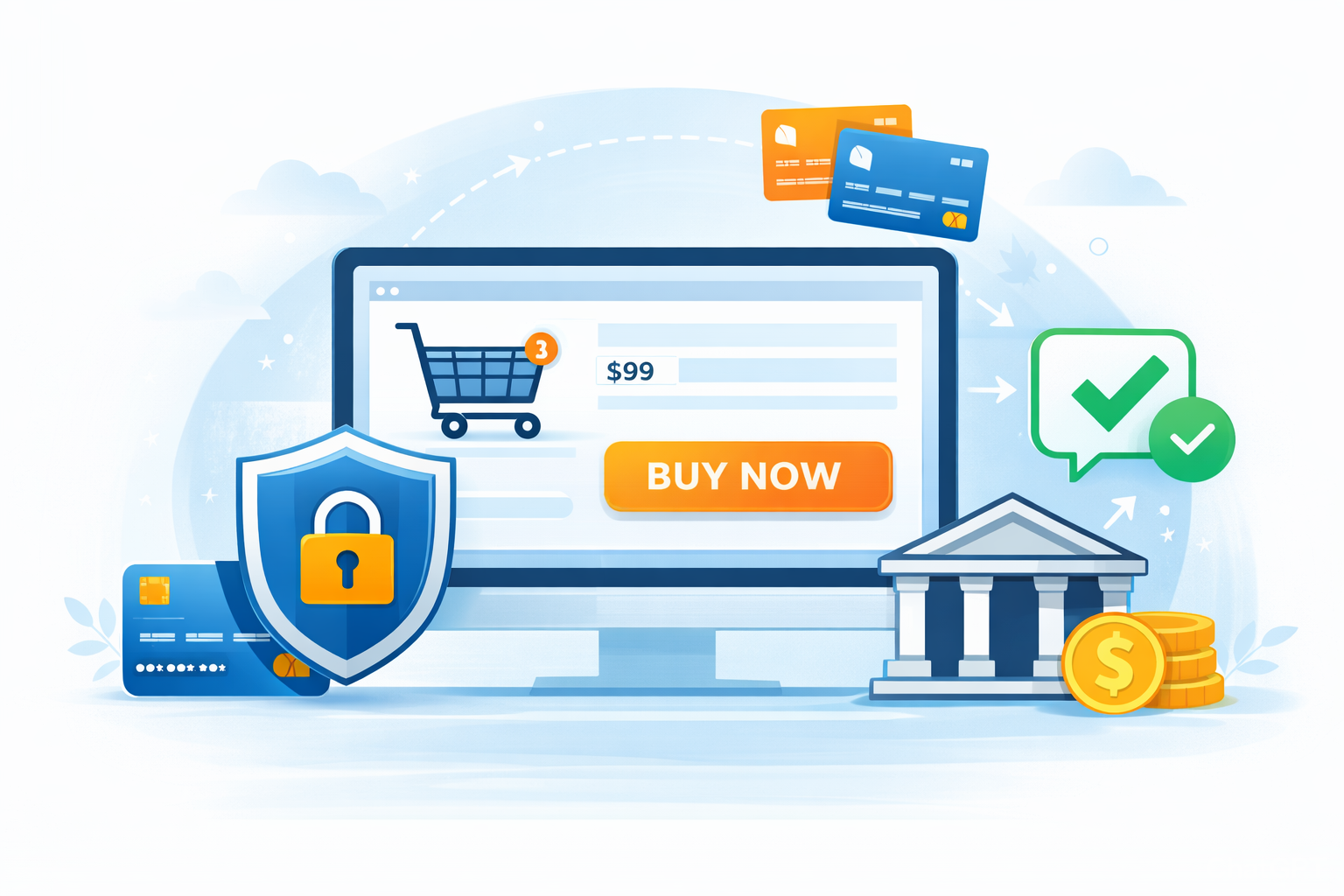Try Zipchat in Action!
Enter your store URL to see how Zipchat would behave.

In today's highly competitive business landscape, customer service plays a vital role in attracting and retaining customers. While reactive customer service has long been the norm, forward-thinking companies are now embracing proactive customer service as a strategic approach to delighting their customers. In this article, we will explore the various benefits of proactive customer service and provide you with best practices to implement in your own organization.
Understanding Proactive Customer Service
What is Proactive Customer Service?
Proactive customer service refers to the practice of anticipating customer needs and addressing them before they arise. Instead of waiting for customers to reach out with a problem or question, proactive customer service takes a proactive approach by actively engaging with customers and providing support and guidance throughout their journey. It goes beyond simply resolving complaints, focusing on building strong relationships and exceeding customer expectations.
One key aspect of proactive customer service is the use of data and analytics to predict customer behavior and preferences. By analyzing past interactions and purchase history, companies can tailor their proactive approach to meet individual customer needs. This personalized touch not only enhances the customer experience but also fosters loyalty and long-term relationships.
Differences Between Proactive and Reactive Customer Service
While reactive customer service involves responding to customer inquiries or complaints after they have occurred, proactive customer service takes a more preemptive approach. Instead of waiting for customers to initiate contact, proactive customer service identifies potential issues and aims to resolve them before they impact the customer experience. By actively engaging with customers and providing timely and relevant information, proactive customer service is a powerful tool for surpassing customer expectations.
Another distinguishing factor between proactive and reactive customer service is the mindset and company culture required to implement each approach successfully. Proactive customer service necessitates a forward-thinking attitude where employees are empowered to take initiative and go above and beyond to delight customers. In contrast, reactive customer service may lead to a more passive work environment, where employees primarily respond to issues as they arise without actively seeking out opportunities to enhance the customer experience proactively.
Benefits of Proactive Customer Service
Enhancing Customer Experience
One of the primary benefits of proactive customer service is the ability to enhance the overall customer experience. By anticipating customer needs and addressing them before they become problems, you can create a seamless and hassle-free experience for your customers. This helps to build trust, loyalty, and positive word-of-mouth recommendations. In fact, studies show that customers who receive proactive customer service are more likely to remain loyal to a brand and recommend it to others.
Reducing Customer Support Workload with Zipchat AI
Implementing proactive customer service can also help reduce the workload on your customer support team. By anticipating and addressing common customer questions or issues before they occur, proactive customer service reduces the number of support tickets and inquiries. One tool that can assist in this regard is Zipchat AI, an AI-powered chatbot that can handle repetitive queries and provide instant resolutions. This not only saves time and resources but also ensures a faster and more efficient support experience for your customers.
Increasing Sales and Conversion Rates
A proactive approach to customer service can also have a positive impact on your sales and conversion rates. By engaging with customers at various touchpoints throughout their journey, you can guide them towards making informed purchasing decisions. For example, proactive live chat interventions during the checkout process can help reduce cart abandonment rates and recover potentially lost sales. Studies have shown that websites with proactive chat have higher conversion rates compared to those without.
Building Customer Loyalty
Building customer loyalty is crucial for long-term business success, and proactive customer service can play a significant role in achieving this. By going above and beyond in anticipating and meeting customer needs, you create a sense of value and appreciation that fosters loyalty and repeat business. In fact, research suggests that customers who have positive proactive customer service experiences are more likely to become brand advocates and make recurring purchases.
Moreover, proactive customer service can also help in gathering valuable customer feedback. By reaching out to customers before they encounter any issues, you can ask for their opinions and suggestions on how to improve your products or services. This feedback can then be used to make informed business decisions and enhance the overall customer experience even further. It shows your customers that you value their input and are committed to continuously improving.
Additionally, proactive customer service can be a powerful tool for upselling and cross-selling. By proactively engaging with customers and understanding their needs, you can recommend relevant products or services that complement their purchase. This not only increases the average order value but also demonstrates your expertise and understanding of their preferences, further strengthening the customer relationship.
Strategies for Implementing Proactive Customer Service
Proactively Chat with Shoppers to Reduce Cart Abandonment
One effective strategy for implementing proactive customer service is to proactively reach out to shoppers who are showing signs of abandoning their carts. By using real-time analytics and tracking customer behavior, you can identify when a customer is hesitating or encountering difficulties during the checkout process. Using live chat or personalized automated messages, you can offer assistance, answer questions, and help them complete their purchase. This proactive approach not only reduces cart abandonment rates but also creates a positive customer experience.
Moreover, implementing a proactive chat system can also provide valuable insights into customer preferences and pain points. By engaging with customers in real-time, you can gather feedback on their shopping experience, product preferences, and any issues they may be facing. This data can be analyzed to improve website usability, enhance product offerings, and tailor marketing strategies to better meet customer needs.
Another benefit of proactive customer service through live chat is the opportunity to upsell or cross-sell products. By engaging with customers during their shopping journey, you can recommend complementary products or upgrades based on their current selections. This personalized approach not only increases the average order value but also demonstrates a deep understanding of the customer's needs and preferences, fostering long-term loyalty.
Leveraging Technology for Proactive Support: Zipchat AI
Using Automated Chatbots for Common Questions
Automated chatbots are a valuable tool for proactive customer service. They can instantly provide answers to commonly asked questions, offer product recommendations, or guide customers to relevant resources. This not only saves time for both customers and support teams but also ensures consistent and accurate information delivery. Integrating an AI-powered chatbot like Zipchat AI into your customer support system can enhance your proactive customer service efforts and improve overall efficiency.
Integrating Customer Support Tools with Ecommerce Platforms
Integrating your customer support tools with your ecommerce platforms is another essential step in implementing proactive customer service. By capturing and analyzing customer data from your website, you can gain insights into customer behavior, preferences, and pain points. Armed with this information, you can proactively address customer needs and tailor your support efforts accordingly. This integration also allows for seamless communication between your support team and your customers, ensuring a smooth and efficient support experience.
Setting Up Real-Time Notifications for Support Issues
Real-time notifications for support issues are crucial for addressing customer concerns as they arise. By setting up alerts for specific keywords or inquiries, you can instantly identify and address potential issues before they escalate. This proactive approach enables you to provide timely resolutions and prevent customer dissatisfaction. Real-time notifications can be implemented through various channels, such as email, SMS, or push notifications, to ensure that support teams are promptly informed and can take immediate action.
Furthermore, integrating Zipchat AI into your customer support system not only enhances proactive customer service but also provides valuable insights into customer interactions. The AI-powered chatbot can analyze customer conversations, identify trends, and generate reports that highlight common pain points or areas where additional support may be needed. These insights can then be used to further improve your proactive customer service strategies and tailor your support efforts to meet specific customer needs.
In addition to integrating customer support tools with ecommerce platforms, it is also important to leverage technology to personalize the support experience. By utilizing customer data and preferences, you can create customized support journeys that cater to individual needs. For example, if a customer has a history of purchasing a particular product, you can proactively offer assistance or provide relevant resources related to that product. This level of personalization not only enhances the customer experience but also increases customer satisfaction and loyalty.
Best Practices for Proactive Customer Service
Personalizing Customer Interactions
Personalization is key to effective proactive customer service. By understanding your customers' preferences, purchase history, and previous interactions, you can tailor your communications and support efforts to their specific needs. Addressing customers by name, offering personalized recommendations, and acknowledging their previous interactions helps create a more personalized and engaging customer experience. Personalization not only builds trust but also enhances customer loyalty and satisfaction.
Providing Timely and Relevant Information
Timely and relevant information is crucial for successful proactive customer service. By keeping customers informed about product updates, promotions, or potential service interruptions, you can prevent potential issues and improve their overall experience. This can be achieved through various channels, such as email newsletters, personalized notifications, or targeted messaging within your website or application. Providing timely and relevant information ensures that your customers feel valued and informed throughout their journey.
Monitoring Customer Behavior and Feedback
A proactive approach to customer service requires continuous monitoring of customer behavior and feedback. By analyzing customer data, tracking support interactions, and actively seeking customer feedback, you can identify areas for improvement and anticipate potential issues. This insight allows you to address customer concerns before they arise, further enhancing the customer experience. Regularly monitoring customer behavior and feedback helps you stay ahead of the curve and deliver proactive support consistently.
Training Customer Support Teams for Proactive Engagement
Training your customer support teams to effectively engage in proactive customer service is essential for success. Ensure that your support teams are equipped with the necessary skills and knowledge to anticipate customer needs, engage in proactive outreach, and provide timely and accurate support. Training should focus on developing active listening skills, empathy, and product knowledge. Regular coaching and feedback sessions can help reinforce these skills and ensure a consistent and proactive customer service approach.
FAQ About Proactive Customer Service
What is the Difference Between Proactive and Reactive Customer Service?
Proactive customer service involves anticipating customer needs and taking preemptive action to address them, while reactive customer service responds to customer inquiries or complaints after they have occurred. Proactive customer service aims to prevent issues before they arise and create a seamless customer experience.
How Can Proactive Customer Service Increase Sales?
Proactive customer service can increase sales by guiding customers towards making informed purchasing decisions. By engaging with customers throughout their journey, offering personalized recommendations, and addressing their concerns or hesitations, you can boost conversion rates, reduce cart abandonment, and increase customer satisfaction.
What Tools Are Essential for Proactive Customer Service?
Several tools can enhance your proactive customer service efforts. AI-powered chatbots, like Zipchat AI, can handle repetitive queries and provide instant resolutions, reducing the workload on your support team. Additionally, integrating your customer support tools with your ecommerce platforms allows for real-time data analysis and seamless communication with customers.
How Do I Train My Team for Proactive Customer Service?
Training your team for proactive customer service involves developing their active listening skills, empathy, and product knowledge. Provide them with the necessary tools and resources to anticipate customer needs, engage in proactive outreach, and provide timely and accurate support. Regular coaching and feedback sessions can help reinforce these skills.
What Self-Service Resources Should I Offer Customers?
Offering self-service resources to customers is an essential component of proactive customer service. Create a knowledge base or FAQ section on your website where customers can find answers to common questions or troubleshoot issues on their own. Providing step-by-step tutorials, video guides, or interactive troubleshooters can empower customers to resolve minor issues independently and reduce their reliance on support teams.
In conclusion, proactive customer service offers numerous benefits, ranging from enhanced customer experience and increased sales to improved customer loyalty. By implementing strategies such as proactive chat, leveraging technology, and following best practices, you can stay ahead of customer needs and build strong relationships with your customers. Investing in proactive customer service is not only a practical business strategy but also a significant differentiator in today's competitive market. So, take the lead and proactively meet your customers' needs for exceptional service and satisfaction.
Transform Your Ecommerce Experience with Zipchat AI
Ready to elevate your customer service and boost your sales? Zipchat AI is here to revolutionize the way you interact with your customers. As the most powerful AI Chatbot for Ecommerce, Zipchat AI not only proactively engages with your store visitors to drive sales but also seamlessly handles customer support, ensuring a smooth and efficient experience. Merchants using Zipchat AI enjoy an impressive average conversion rate of 13.4% from Chat-to-Sale. Don't miss out on the opportunity to transform your business. Start your 7-Day Free Trial today and witness the difference proactive customer service can make!








